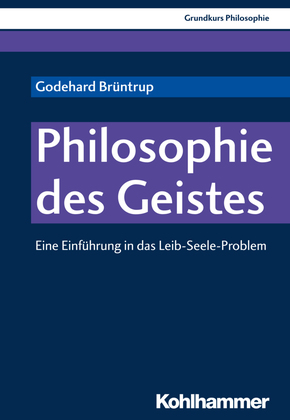
Philosophie des Geistes - Eine Einführung in das Leib-Seele-Problem
| Verlag | Kohlhammer |
| Auflage | 2018 |
| Seiten | 205 |
| Format | 14,1 x 20,3 x 1,0 cm |
| Gewicht | 251 g |
| Reihe | Grundkurs Philosophie 22 |
| ISBN-10 | 3170340360 |
| ISBN-13 | 9783170340367 |
| Bestell-Nr | 17034036A |
Fortschritte in den empirischen Wissenschaften geben uns heute mehr Einblicke in das Verhältnis von Körper und Geist als je zuvor. Dennoch widersetzt sich das Leib-Seele-Problem einer schnellen Lösung durch die empirische Forschung. Man stößt bald auf tiefe und hartnäckige philosophische Fragen: Wie weit reicht die Unabhängigkeit des Geistes vom Körper? Sind Gehirn und Geist identisch? Kann der Geist in der Welt etwas bewirken? Die Philosophie kann zur Beantwortung solcher Fragen einen genuinen Beitrag leisten. So gibt diese komplett überarbeitete Neuauflage des Bandes "Das Leib-Seele-Problem" einen Überblick über die aktuellen Debatten in der Philosophie des Geistes. Auf systematische Weise wird eine "Landkarte" der wichtigsten Positionen und Argumente gezeichnet und so die Orientierung wesentlich erleichtert. Das Schlusskapitel hinterfragt die kartesischen Voraussetzungen der aktuellen Debatte und versucht einen alternativen Lösungsweg aufzuzeigen.
